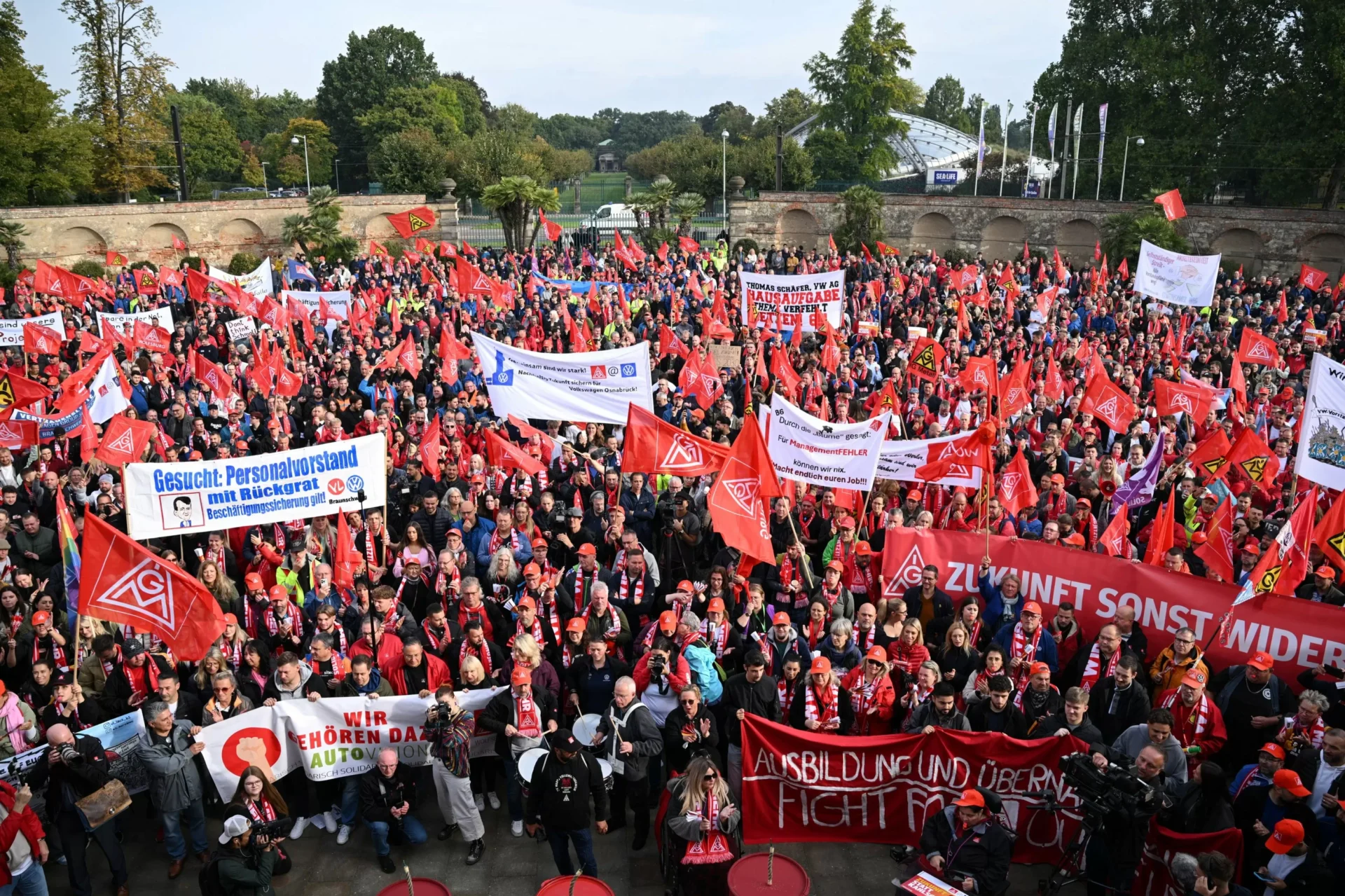Union Leaders Warn Volkswagen Against Making Historic Mistake in Pay Negotiations
The stage is set for a crucial round of pay negotiations between German automaker, Volkswagen, and its labor unions. The talks, which began on Wednesday, have already been marred by threats of strikes and warnings from union leaders. The stakes are high and both parties must navigate the delicate balance between fair compensation and maintaining the financial health of the company.
The German labor union, IG Metall, has warned Volkswagen that any attempt to undermine workers’ rights or reduce pay would be a “historic mistake.” In a statement, the union said, “We will not stand idly by and watch as the hard-earned rights of our workers are eroded. We are prepared to take action to defend our members and their livelihoods.”
The negotiations come at a critical time for Volkswagen, as the company continues to face the fallout from its diesel emissions scandal. The company has already been hit with billions of dollars in fines and settlements, and the repercussions are far from over. As Volkswagen struggles to regain its footing, it must carefully consider the impact of its decisions on its workforce.
On the other side of the table, Volkswagen has made it clear that it is facing financial pressures, and any significant increase in labor costs could further strain the company’s already fragile finances. In a statement, the company said, “We are committed to finding a fair and sustainable solution for both our employees and the company. However, we must also take into account the current economic challenges facing the automotive industry.”
The negotiations are expected to shape the future of pay and working conditions for over 120,000 Volkswagen employees in Germany. The outcome will also have a ripple effect on the entire automotive industry, as many German companies have traditionally followed Volkswagen’s lead in labor negotiations.
The demands of the labor unions are clear: a 6% increase in wages and a reduction in working hours from 35 to 28 per week. They argue that workers have made significant sacrifices in the past, including accepting a wage freeze, to help the company weather the diesel emissions scandal. Now, they say, it is time for Volkswagen to reward their loyalty and hard work.
On the other hand, Volkswagen is pushing for a wage freeze this year, followed by a 1.5% increase in 2020 and another 1.5% in 2021. The company also wants to maintain the current 35-hour workweek and is not willing to budge on this issue.
As negotiations continue, both sides must keep in mind the bigger picture. Volkswagen must find a way to balance the needs of its employees with its financial responsibilities, while the unions must understand the challenges facing the company and be willing to compromise.
It is important to note that Volkswagen has a history of positive labor relations, with a long-standing tradition of collective bargaining and cooperation between management and workers. This has been a key factor in the company’s success, and it is crucial that this relationship is maintained.
The negotiations also come at a time when the automotive industry is undergoing a significant transformation. The rise of electric and autonomous vehicles has led to a shift in the industry, and companies like Volkswagen must adapt to stay competitive. This means finding a balance between investing in new technologies while also taking care of their workforce.
In conclusion, the pay negotiations between Volkswagen and its labor unions are a critical juncture for both parties. The outcome will not only impact the company and its employees but also have wider implications for the German automotive industry. It is important for both sides to approach the talks with an open mind and a willingness to find a fair and sustainable solution. Let us hope that through constructive dialogue and compromise, a mutually beneficial agreement can be reached. After all, the success of Volkswagen is dependent on the hard work and dedication of its employees, and it is in the best interest of the company to ensure their well-being.

